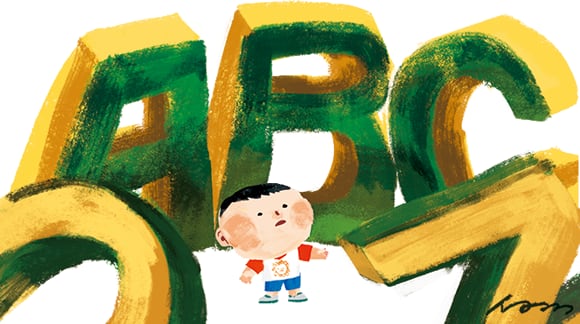English Exams for 4- and 7-Year-Olds: A Form of Child Abuse

Understanding the 7-Year-Old Exam and Its Impact on Young Children
The "7-year-old exam" has become a significant concern for many parents in South Korea, especially those aiming to enroll their children in top-tier English kindergartens. This exam is closely tied to the Start Reading (SR) test, which measures a child's reading ability. An SR level of 2.2 corresponds to the second semester of second grade in the U.S. education system, indicating that a child is expected to be able to read and comprehend basic texts within a 30-minute time limit. However, in Daechi-dong, a neighborhood known for its competitive educational environment, an SR level of 3 or higher is typically required to qualify for the 7-year-old exam.
This high standard means that most children fail, leading many families to enroll their kids in academies to improve their chances. These academies focus on various aspects of language learning, including writing, listening, grammar, and speaking. The pressure to succeed at such a young age has even led to the emergence of the “4-year-old exam,” which prepares children for entry into prestigious English kindergartens. This trend reflects a growing societal expectation that children should begin their academic journey earlier than ever before.
The Rise of Early Education Programs
The preparation for these exams often involves intense training sessions. For example, children are taught to sit alone for extended periods without parental support, practice writing with an adult guiding their hand, and even wear diapers while learning due to difficulties with bladder and bowel control. These practices highlight the extreme measures some parents are willing to take to ensure their children meet the high standards set by the education system.
Despite the challenges, the demand for early education continues to rise. One reason for this is the belief that mastering English before entering elementary school will help children excel in math and science, subjects that are introduced early in the curriculum. While the college entrance English exam has become easier under the absolute evaluation system, the pressure to start English education at a young age remains strong. Parents hope that their children will eventually speak English like native speakers, but this goal often takes a backseat to the immediate need for academic advancement.
The Medical School Connection
Interestingly, the trend of enrolling young children in English kindergartens is deeply rooted in the broader societal preference for medical careers. With 90% of parents expressing a desire for their children to attend medical school, the emphasis on early education is seen as a way to give them a competitive edge. This mindset creates a cycle where children are pushed to learn as much as possible from a very young age, often at the expense of their well-being.
Legal and Ethical Concerns
The intense pressure placed on young children has not gone unnoticed. A civic group recently filed a petition with the National Human Rights Commission, arguing that the 7-year-old exam constitutes child abuse. The commission found that children’s rights to play, rest, and self-expression were being violated and recommended that the Ministry of Education develop countermeasures. Although the ministry took action by identifying 23 kindergartens and imposing fines and partial class suspensions, many critics argue that these measures are only superficial fixes.
The root cause of the English kindergarten craze lies in the current entrance exam system and the deep-seated anxiety among parents. Even though many parents recognize the importance of free play for mental health, societal competition and fear of failure drive them to push their children toward advanced learning. This pressure can have long-term consequences, as highlighted by a recent report from the Korea Institute of Child Care and Education. The study, which surveyed 2,150 infants and parents, found no significant difference in academic performance between children who received private education between the ages of 2 and 5 and those who did not. In fact, many children who started private education too early reported lower self-esteem and life satisfaction.
Conclusion
The relentless pursuit of academic excellence at an early age has created a culture of intense competition that affects both children and their families. While the intention is to provide the best possible future for children, the methods used often come at a high cost. As society continues to grapple with these issues, it is essential to find a balance between academic achievement and the well-being of young children.

Comments
Post a Comment